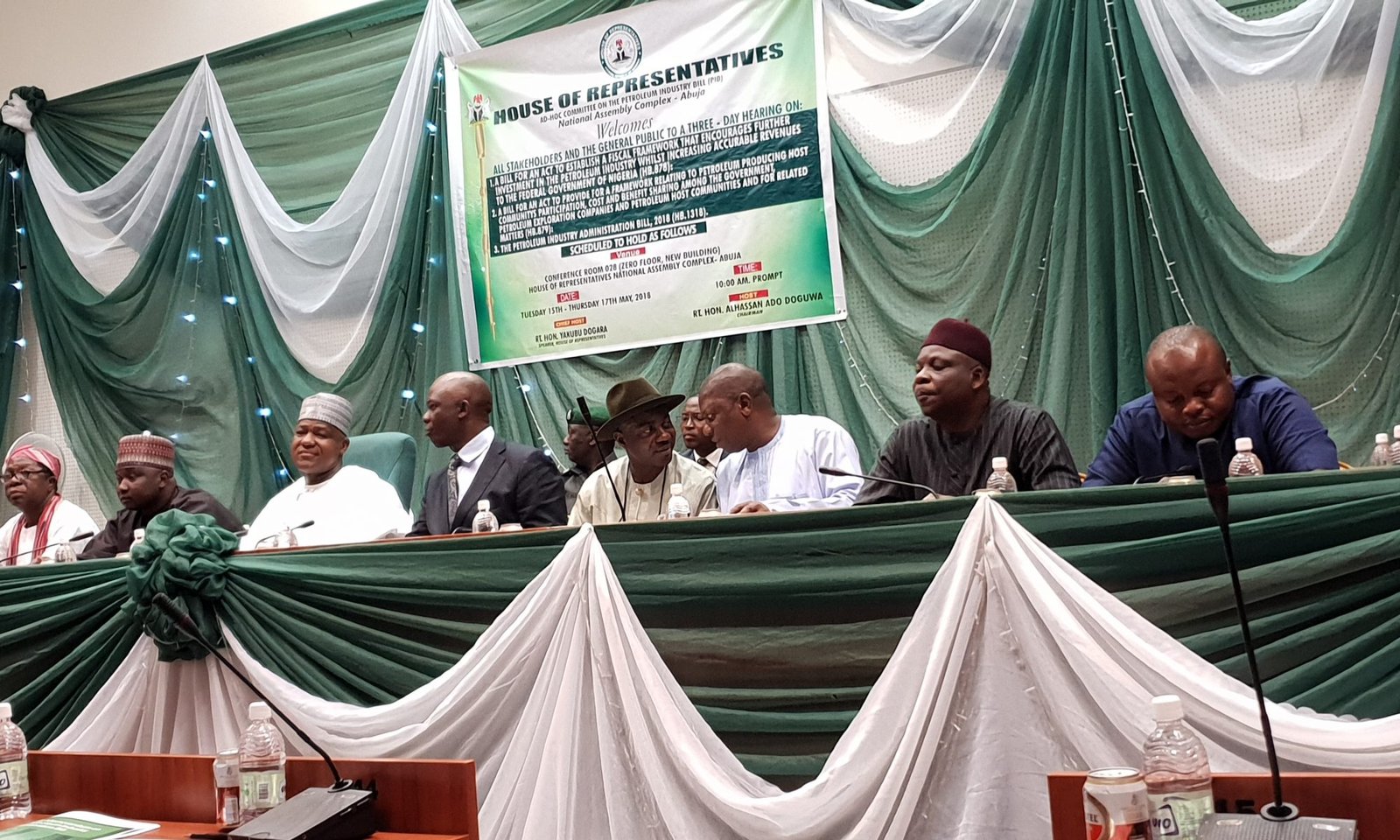- 6 frontier basins should be specifically designated
- OPLs located in water depths greater than 2000 metres in the Niger Dela be identified and designated as Frontier Areas
- Grant exception for indigenous frontier operators from 5% flat royalty rate and windfall clawback of 0.05% per dollar above $60 oil price
- 10 year royalty holidays for frontier basins should be placed in the law rather than granted at the discretion of the Commission
- assessable tax for frontier operators to be a flat rate of 30%
- allow indigenous operators in frontier basis to recover all of the signature bonuses and reduction of the production bonuses payable for frontier leases
House of Reps Public Hearing 5 – FIRS
PIFB
- multiple tax rates will encourage aggressive tax planning – harmonise tax rates
- APIT – should be scrapped and windfall profits should be derived from Royalty and based on increases in price
- some sections would impose on the sovereignty of Nigeria
House of Reps public hearing 4 – NUPENGASSAN
NUPENG & PENGASSAN jointly made a presentation to the House of Reps
- PIFB
- Production Allowances would lead to downsizing
- Removal of AGFA would significantly impact the development of gas projects
- Power of the Commission to determine measurement points are excessive
- Gas to power projects should be designated as strategic
- PIAB
- Excessive powers of the Commission
- Power of the president to direct the award of a license should be removed
- the Nigerian Nuclear Regulatory Authority should have been included in the Bill
House of Reps public hearing 3 – Hostcom umbrella group
- On Host Community Fund
- 5% insufficient…it should be 10% equity participation including a 5% contribution from the government
- host communities to be granted the right to incorporate a National Host Communities Development Trust
- Gas flare penalties to be paid to the Host Communities
- Pipeline surveillance contracts to be awarded to Host Communities
House of Reps Public Hearing 2 – IPPG
- Gas flaring – the provisions on gas flaring seem excessively punitive
- Domestic Supply Obligations – should not apply to crude oil or gas
- Abandonment Fund – the provisions on abandonment should be flexible to allow different organisations evolve mechanisms appropriate for their organisation.
- Delineation of sectors – existing operations to be grandfathered
- Acreage relinquishment – too aggressive and only 50% of acreage be relinquished
- Powers of the Commission – may prove excessive
House of Reps Public Hearing 1 – OPTS
- Aggressive relinquishment – post-production license too aggressive and should be limited to 50% of acreage
- Dormant fields – concerns around the “retroactive” provisions regarding dormant fields and a recommendation that it should only apply after the passage of the Bill;
- Domestic crude supply obligation – there should be no DCSO and crude purchase in the domestic market should be commercially negotiated;
- Segregation of the operating sectors – delineation of the sectors should take into account existing investments and should only apply to new investments;
- Gas flaring provisions are too penal and will not achieve the intended goal of ending flaring;
- Excessive power of the Commission – the powers of the Commission are excessive in some areas
- Total MD fully supportive of the efforts to eliminate gas flaring through the various projects which they have recently commissioned. They are however concerned about the punitive nature of the Bill’s provisions and would recommend the encouragement of the development of infrastructure to bring gas to the market. He also recommended that safety and emergency flaring be removed from the punitive provisions.
- Chevron MD concerned about the provisions relating to the delineation of the sectors by the Commission.
- Exxon Mobil MD raised concerns around acreage management. The length of term of the exploration period of 5 years is too short and should be increased to 7 years. The provisions relating to dormant fields should apply to fields discovered after the passage of the bill. The provisions relating to post-production acreage relinquishment too aggressive.
- NAOC MD concerned about the excessive powers of the Commission. In particular the power to impose penalties. Concerned about tariff methodology and worried about alleged lack of consultation. Penalties do not appear to take into account the severity of the infringement.
Honourable Speaker declares the public hearing open
Public Hearing on the Petroleum Industry Reforms about to commence
We will be live blogging important points from the session at the House of Representatives today.
PIAB – What Happens to Existing OPLs and OMLs?
Under the Petroleum Act 1969, the Minister may award among others, an Oil Prospecting Licence (OPL) and an Oil Mining Lease (OML) for petroleum developments. The OPL is usually a precursor to the OML and is granted for the exploration/prospecting phases of petroleum development. Once petroleum is discovered in commercial quantities, the OPL may be converted to an OML which is used for the development and production phase. The PIAB introduces the Petroleum Licence (PL) which combines the exploration/prospecting phase with the development and production phases. What happens to existing OPL and OML holders? Continue reading “PIAB – What Happens to Existing OPLs and OMLs?”
Summary of the Petroleum Host and Impacted Communities Development Bill 2018
Introduction
The Petroleum Host and Impacted Communities Development Bill 2018 (the “Host Community Bill” or the “Bill”) is made up of six parts, twenty-seven sections on 15 pages. The Bill is formally titled “A Bill for: An Act to provide for Petroleum Host and Impacted Communities Development Trust, Incorporation of Petroleum Host and Impacted Communities Trusts and for other related matters.” Continue reading “Summary of the Petroleum Host and Impacted Communities Development Bill 2018”

